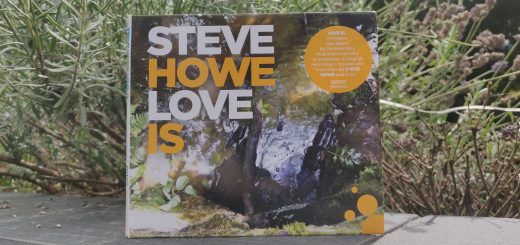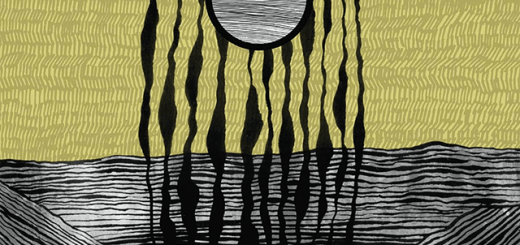TesseracT: ‘War of Being’ Review

The album art for War of Being
Five years after their previous studio release, UK progressive metal artists TesseracT, are back in the spotlight with War of Being. The five-man band has made themselves established giants in the prog djent scene throughout the 2010s. Upon announcement, this album became my most anticipated of the year and I wasted no time diving in.
If you’ve followed the band for a while, you may already be familiar with the opening track, Natural Disaster, as they’ve played it live for over a year now. As with many TesseracT songs, I needed a few listens to digest and fully appreciate it. But now I’m elated to say it’s one of my favourite tracks on the album. The ferocity it delivers right out of the gate is almost new to the band, and certainly hasn’t been heard since their debut album One. The ripping screams from Dan and outstanding climax of the song make this an instant classic in their discography.
The next track, Echoes clicked immediately. While simpler in structure than much of their work, it plays like an anthem that I personally can not wait to see live. It sounds so much like it could’ve been a bonus track from Polaris, which I love. It features a thrilling chorus (which isn’t always the case in TesseracT songs) that’ll have you jumping up and down.
The Grey was the second single released and caps off a near-perfect three-song start to the album. The track kicks off strong with some of the groovy bass lines that are so iconic to the band. Used sparsely, the screams have such an impact here. The Grey stands as one of the more memorable songs on the album.
After the three opening tracks, War of Being takes on a more experimental sound. Legion is the first sound on that path, opening with a spacey guitar riff that holds throughout much of the track. Dan’s vocals range all over the place here, regular singing, falsettos, screaming, chanting. There’s a lot going on in Legion, and yet it’s the most atmospheric song so far. And that contrast makes it stand out for me.
Tender takes a more melancholic tone, and could even be called the first ballad on the album. It reminds me of Hexes, Tourniquet, or April, from previous albums. Though time will only tell if this track has the longevity and quality of those songs, a big separator for Tender is the harsh vocals introduced in the last 30 seconds that take it to another level.
And finally we arrive at the longest song on the album, lead single, and title track, War of Being. A lot has already been said about this track. It really hasn’t gotten old for me, despite returning to it over and over. It can be meandering, and lacks any returning threads through its eleven-minute runtime. You could argue that it’s just three to four songs smashed together. I would counter that if each of those four songs was an absolute banger, why not smash them all together?
I’m pretty proud of myself for making it this far through the article without gushing over Dan’s vocals. This feels like an appropriate place to do that. The first time I heard ‘War of Being’ I wrongly assumed they brought on a guest vocalist for some of the deeper growls early in the track. It wasn’t until I saw the music video that I realized it was all Dan Tompkins. Throughout this whole song and album, he flexes his vocal range more than ever before, often switching rapidly between singing and screaming in a way that not a lot of vocalists are capable of. He’s one of my all-time favourites, and I believe this record cements him as one of the most talented in the genre.
Sirens takes us into the back third of the album. This track has yet to grab me like many of the others have. It’s quieter, and more laid back than most of the album, but lacks the hooks that are also present throughout the rest of the record. I will mention this album easily has best production of any TesseracT album since Altered State. And that can be so much more important on the quieter tracks such as this.
I find that Burden succeeds where Sirens falls short. It is again a quieter song, where most of the aggression from earlier in the album is absent, though admittedly it builds to that in the back half of the track. I intend every one of these comparisons to their older work as a compliment. War of Being doesn’t feel like a retread at all. It’s more about growth, TesseracT has strengthened their production and songwriting, among other things. Burden stands strong as the penultimate track.
The album’s finale is the second longest, at nine minutes, Sacrifice. This song has fewer points of interest to keep me invested over its longer runtime as the title track does. It builds nicely, leaning on both atmosphere and groove, both staples of TesseracT’s sound. I would say it lacks that huge climax that you would hope for from the last track on the album, especially when the album is littered with those moments. But it is still a quality finisher and caps the record off well.
I feel like a cliche line for an album review is calling it, “a culmination of all their previous work”. And yet that rings so true here. The band has brought together the aggressive tone and harsh vocals of One, the epic climaxes and riffs from Altered State, the grooves and catchiness in Polaris, and the mature songwriting and style of Sonder.
War of Being attempts the difficult feat of merging all these old sounds while also bringing something unique to the table. I believe it succeeds in this. TesseracT has become one of the most influential bands in the scene over the last decade, and their latest instalment will only continue that trend.









